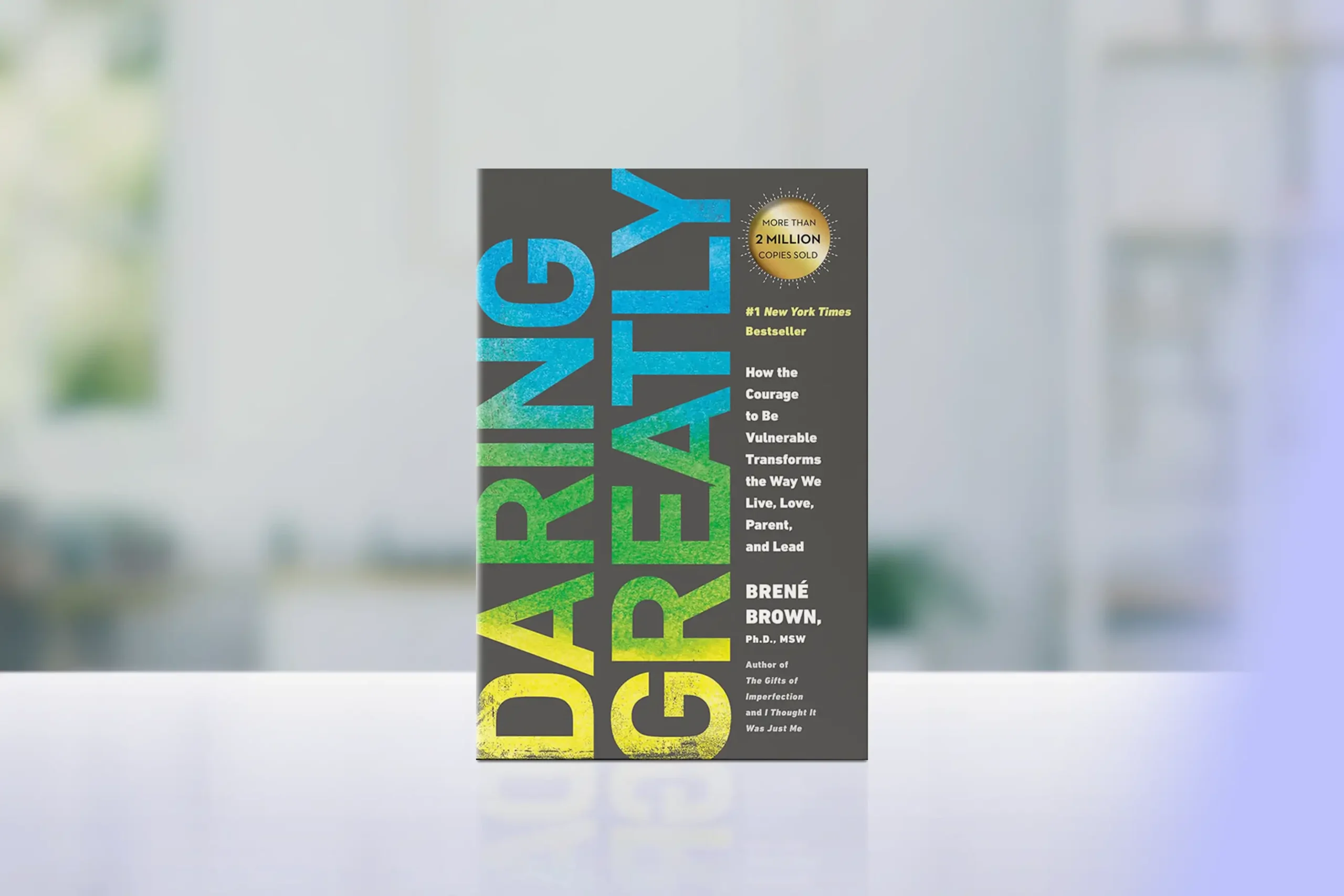Mastering self-discipline—whether in your personal life or professional pursuits—is the key to achieving your goals. It empowers you to stay focused, overcome distractions, and take consistent action—even when motivation fades. This article explores how developing self-discipline can transform your habits and unlock lasting success.
Inside this article:
1. The Power of Self-Discipline
What if I told you that the ability to resist one marshmallow at age four could predict your exam scores, academic success, and even your overall life satisfaction decades later? This remarkable finding from psychology’s most famous experiment reveals something profound about human potential.
Research consistently shows that self-control has a more significant positive impact on academic success than cognitive intelligence. Longitudinal studies following over a thousand individuals from childhood to adulthood found that self-control measured in the first decade of life predicts income, financial security, occupational prestige, physical and mental health—with predictive power comparable to intelligence itself.
But here’s what’s truly exciting: self-discipline isn’t a fixed trait you’re born with or without. It’s a skill you can develop, strengthen, and master. Whether you’re struggling to stick to your fitness goals, advance in your career, or build better financial habits, the principles of self-discipline offer a proven path forward.
Related Reading: Explore “Atomic Habits” by James Clear to learn how small changes can lead to remarkable results through disciplined action.
Key Takeaway: Self-discipline is a stronger predictor of life success than intelligence and can be developed through practice, making it one of the most valuable skills you can master.
2. Understanding Self-Discipline
Self-discipline is the ability to align your thoughts, feelings, and actions with your long-term goals, even when faced with more immediately appealing alternatives. It’s what allows you to choose the morning workout over extra sleep, tackle that challenging project instead of scrolling social media, or save money for your future rather than making an impulsive purchase.
Think of self-discipline as your internal guidance system—a sophisticated navigation tool that helps you stay on course toward what matters most, even when external circumstances or internal impulses try to pull you off track.
Common Myths About Self-Discipline
- Harsh self-criticism builds discipline: Self-compassion actually strengthens our ability to make better choices
- You’re either disciplined or you’re not: Self-discipline can be developed through practice
- It’s all about willpower: Successful people rely on systems and habits rather than willpower alone
Self-Discipline Is a Skill, Not a Personality Trait
Recent research reveals that when individuals experience a sense of successful self-discipline, it enhances their autonomous motivation and reduces procrastination. This suggests that each act of self-discipline builds upon itself, creating positive momentum. Like strengthening a muscle through exercise, every time you choose your long-term goal over immediate gratification, you’re literally rewiring your brain to make that choice easier next time.
The neuroscience is fascinating: each disciplined choice strengthens the neural pathways associated with executive function, making future self-control less effortful. This is why people who start with small habits—like making their bed every morning—often find it easier to tackle larger challenges later.
Related Reading: Dive deeper into habit formation with “The Power of Habit” by Charles Duhigg or learn about building better habits through our guide on Building Resilience: Bouncing Back from Life’s Challenges.
Key Takeaway: Self-discipline is a learnable skill that gets stronger with practice, not a fixed personality trait you’re born with or without.

3. The Psychology Behind Self-Discipline
Understanding how your brain works when it comes to self-control can dramatically improve your ability to develop it. At its core, self-discipline involves habit formation, willpower management, and motivation.
The Habit Loop: Your Brain’s Efficiency System
Every habit follows a predictable pattern: cue, routine, reward. Your brain creates these automatic loops to conserve mental energy. Understanding this loop is crucial because many of our self-discipline challenges involve either breaking bad habits or building good ones.
Willpower and Decision Fatigue
According to research, self-control resources are limited, and successful self-discipline depletes these resources. This explains why you might eat perfectly all day but struggle with late-night snacking. However, there’s encouraging news: while efforts in self-discipline deplete resources, the positive outcomes brought about by successful self-discipline may potentially serve as a supplement to psychological resources.
Intrinsic vs. Extrinsic Motivation
Not all motivation is created equal. Intrinsic motivation—doing something because it’s inherently satisfying or aligns with your values—tends to be more sustainable than extrinsic motivation, which relies on external rewards or pressures.
Related Reading: Explore “Mindset” by Carol S. Dweck to understand how your beliefs about ability shape your success, or read our article on Cultivating a Growth Mindset: Transforming Challenges into Opportunities.
Key Takeaway: Understanding the science behind willpower, habit formation, and motivation helps you work with your brain’s natural patterns rather than against them.
4. Identifying Your True Goals
Before building self-discipline, you need clarity about what you’re disciplining yourself toward. Many people struggle with consistency not because they lack willpower, but because they haven’t identified goals that truly resonate with their values.
Differentiating Between Desires and Goals
Desires are immediate wants: the urge to buy something you see online, the impulse to skip a workout, the temptation to binge-watch another episode. Goals are the outcomes you want to achieve over time: building financial security, improving your health, or developing a new skill.
The magic happens when you can connect your long-term goals to your moment-to-moment choices. That workout isn’t just about the next hour—it’s about the strong, energetic person you’re becoming.
Techniques for Deep Self-Reflection:
- Values inventory: List your top five values, then assess goal alignment
- Future self visualization: Imagine yourself five years from now having achieved your goals
- The “why ladder”: For each goal, ask “why is this important?” five times
Aligning Goals with Purpose and Passion
Your most compelling goals sit at the intersection of what you’re passionate about, what you’re good at, and what creates meaningful impact. When goals connect to your deeper sense of purpose, self-discipline stops feeling like deprivation and starts feeling like self-expression.
Related Reading: Discover your deeper motivations with “Start with Why” by Simon Sinek or explore our comprehensive guide Discovering Your Life’s Purpose: Step-by-Step Guide.
Key Takeaway: Goals aligned with your values and deeper purpose create natural motivation that sustains self-discipline even when willpower wavers.

5. Setting and Achieving Your Goals
Once you’ve identified goals that truly matter to you, the next step is structuring them in a way that sets you up for success.
The SMART Framework
SMART goals are Specific, Measurable, Achievable, Relevant, and Time-bound:
- Specific: Instead of “get in shape,” try “complete a 5K run”
- Measurable: Define exactly how you’ll know you’ve succeeded
- Achievable: Stretch yourself while remaining realistic
- Relevant: Ensure the goal connects to your broader life vision
- Time-bound: Set both final deadlines and regular check-in points
Breaking Large Goals into Manageable Tasks
Large goals can feel overwhelming, but every significant achievement results from many small, consistent actions. For example, changing careers within a year:
- Annual goal: Successfully transition to a new career
- Monthly objectives: Network with five professionals in your target field
- Daily actions: Dedicate 30 minutes to career-transition activities
Related Reading: Master the art of achievement with “The One Thing” by Gary Keller and Jay Papasan or learn advanced techniques in our article Mastering Personal Growth: Setting and Achieving Your Goals.
Key Takeaway: Well-structured goals broken into smaller, manageable steps create clear pathways to success and maintain motivation through visible progress.
6. Building a System for Discipline
Self-discipline isn’t just about making good choices in the moment—it’s about creating systems that make good choices easier and bad choices harder.
Daily Routines and Rituals
Routines reduce decision fatigue by automating beneficial behaviors. Effective routines include:
- Morning ritual: Starting your day with goal-aligned activities
- Evening wind-down: Preparing for the next day and reflecting on progress
- Weekly review: Assessing what worked and adjusting strategies
Time Management Techniques
Effective time management supports discipline by ensuring you have the mental resources to make good choices:
- Time blocking: Dedicating specific periods to important activities
- The Pomodoro Technique: Working in focused 25-minute intervals
- Priority matrices: Distinguishing between urgent and important tasks
Related Reading: Explore productivity systems in “Getting Things Done” by David Allen.
Key Takeaway: Systems and environments that support your goals are more reliable than willpower alone—design your life to make good choices easier and bad choices harder.

7. Overcoming Obstacles and Staying Consistent
Even with the best plans and systems, you’ll face challenges that test your resolve. The difference between those who achieve their goals and those who abandon them isn’t the absence of obstacles—it’s how they respond when difficulties arise.
Common Challenges and Solutions
- Procrastination: Often stems from feeling overwhelmed or perfectionism. Solution: Break tasks into smaller components and commit to just five minutes of action
- Self-doubt: The inner voice that questions your capabilities. Solution: Keep a record of past successes to reference during difficult moments
- Burnout: Pushing too hard without adequate rest. Solution: Build rest and celebration into your routine, not just work
- Loss of motivation: Initial excitement naturally fades over time. Solution: Focus on systems and identity rather than relying on motivation alone
Managing Setbacks and Building Resilience
Setbacks aren’t failures—they’re information. Research shows that experiencing a sense of successful self-discipline reduces procrastination through enhanced autonomous motivation, which means that bouncing back from setbacks actually strengthens your future self-discipline capacity.
When you experience a setback:
- Acknowledge it without judgment: “I didn’t follow through today, and that’s okay”
- Analyze what happened: What circumstances led to the setback?
- Adjust your approach: What can you do differently next time?
- Recommit immediately: Take one small action toward your goal right away
The Power of Accountability
Surrounding yourself with the right people can dramatically increase your success rate:
- Accountability partners: Someone who checks in on your progress regularly
- Support groups: Communities of others pursuing similar goals
- Mentors: People who have achieved what you’re working toward
Related Reading: Build mental toughness with “Can’t Hurt Me” by David Goggins or learn resilience strategies in our article Building Resilience: Bouncing Back from Life’s Challenges.
Key Takeaway: Obstacles and setbacks are normal parts of the growth process—how you respond to challenges, not their absence, determines your long-term success.
8. Your Self-Discipline Journey
As we reach the end of our exploration into self-discipline, it’s worth reflecting on the profound connection between the choices you make today and the life you’ll experience tomorrow. Self-discipline has been shown to be a stronger predictor of academic and life success than intelligence itself, but perhaps more importantly, it’s the bridge between who you are now and who you have the potential to become.
Starting today, you can begin building transformative self-discipline:
- Identify one meaningful goal that aligns with your values
- Design one small daily habit that moves you toward that goal
- Create environmental supports that make success more likely
- Find one person who can provide accountability and encouragement
Continuing Your Journey
Self-discipline isn’t about perfection—it’s about persistence. It’s not about never making mistakes; it’s about how quickly you get back on track. Every moment offers a new opportunity to choose alignment with your goals over immediate gratification.
The research in “The Science and Practice of Self-Control” explore how people with stronger self-discipline experience better relationships, improved health, greater financial security, and higher life satisfaction. Your future self is shaped by the choices you make today. What will you choose to build into your life, starting today?
Related articles
How to Build Self-Discipline for Personal Growth
Develop the mental strength and consistency needed to overcome obstacles and achieve your most important goals.
The Power of Discomfort: How Stepping Out of Your Comfort Zone Accelerates Growth
Discover how embracing discomfort and challenging yourself leads to breakthrough personal development and stronger self-control.
Productivity Hacks for Busy Professionals
Learn time management strategies and focus techniques that support disciplined work habits and goal achievement.
The Science of Fear: Understanding Your Brain’s Response to Threats
Master your psychological responses to challenges and build the mental resilience essential for maintaining discipline.
Further reading
“The Slight Edge” by Jeff Olson
Reveals how small, consistent daily actions compound over time to create extraordinary results, perfectly aligning with disciplined behavior.
“Make Your Bed” by Admiral William H. McRaven
Demonstrates how small acts of discipline in daily routines build the foundation for handling life’s bigger challenges.
“The Success Principles” by Jack Canfield
Comprehensive guide to achieving goals through disciplined action and proven success strategies.
“The 10X Rule” by Grant Cardone
Challenges you to take massive action and maintain extraordinary levels of effort to achieve breakthrough results.





